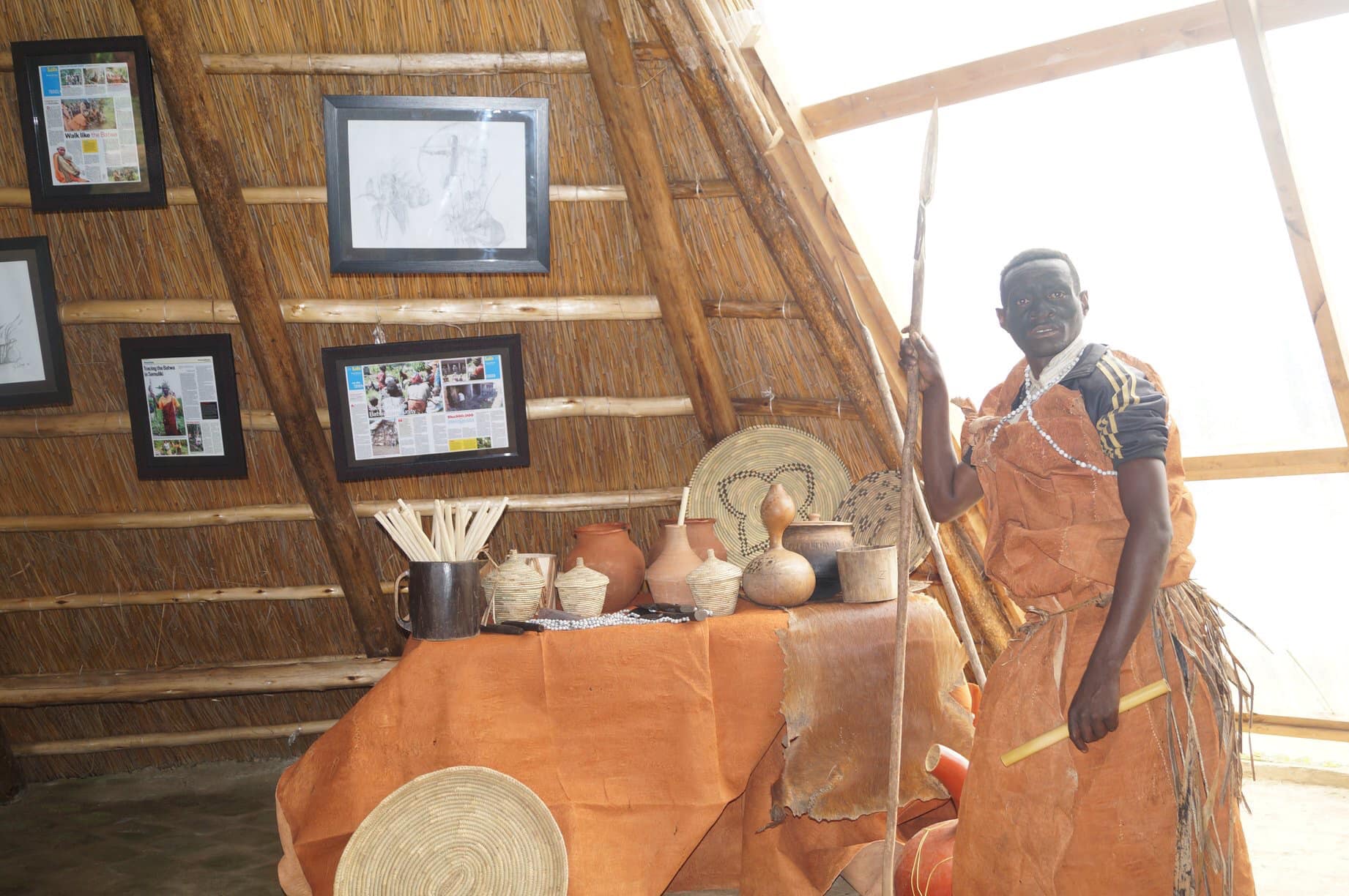
Heritage centre to give a new lease of life to fading Batwa culture

It is a Friday morning in front of a number of dignitaries including the area Member of Parliament that a group of over 15 Batwa are singing and dancing to their folk songs.
“Abatwa baruga omu ihamba” literally translated as the Batwa are happy to have left the forest are some of the lyrics to the song they are singing.
The occasion is to launch the Batwa heritage centre spearheaded by Change A Life Bwindi and Community Conservation Partners.
However, a closer look at the faces participating in reciting the folk song shows they are doing it for formality because things have not been same since leaving the forest.
According to history, the Batwa are the original people of the forest who were the first inhabitants of the rain forests of Rwanda, Uganda and Burundi and are among the oldest tribes in Africa.
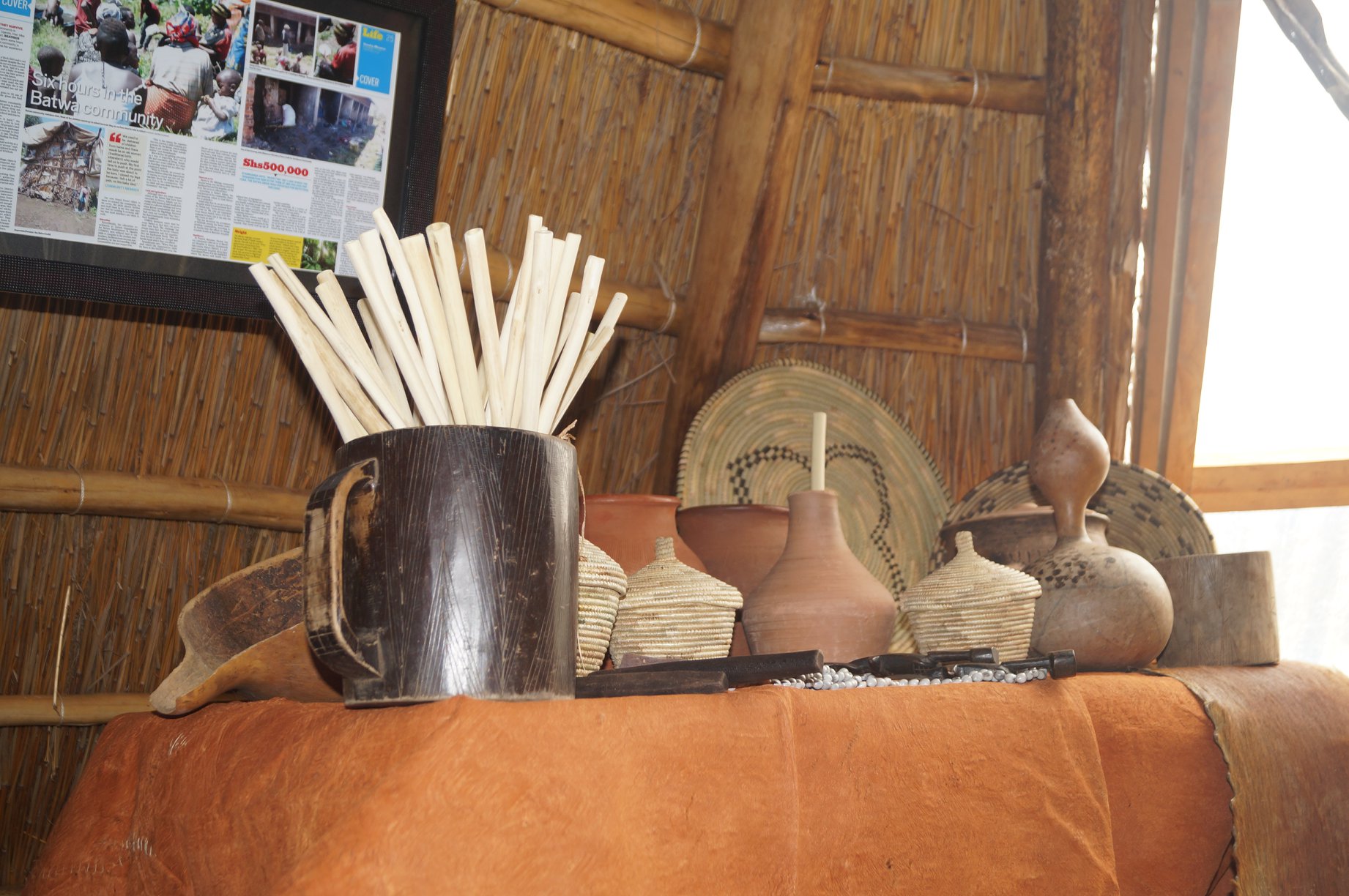
All was good for the group living on the Ugandan side not until 1991 when the Mgahinga and Bwindi national parks were established for the protection of forests, wildlife and mountain gorillas.
This meant that the Batwa, who had lived for over 50000 years in the tropical rainforest had to be evicted from their home and resettled to nearby areas and among them is Ruhija.
According to 65 year old David Kakuru, the forest is where the Batwa felt at home before being displaced.
“We could sleep under big stones or caves from where the men would go hunting and looking for honey to feed the other family members,”Kakuru says.
“It was a peaceful life where the women stayed home to look after the young ones as the men went to gather food.”
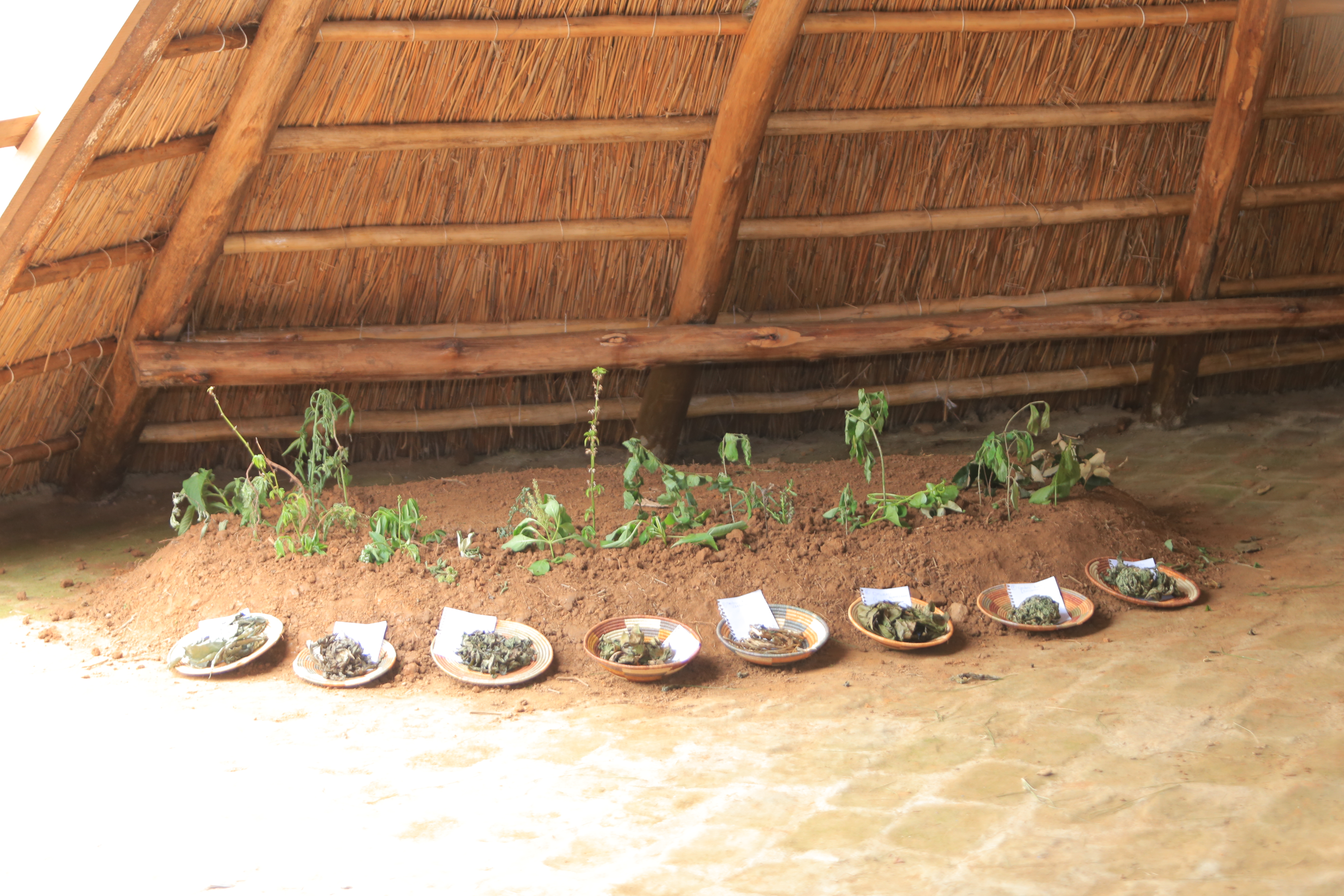
The 65 year old insists that when a man got interest in a girl, they would go collect honey and present it to the girl’s family as bride price because they were allowed to go and live as wife and husband.
They would then start their own family.
When it came to falling sick, the Batwa would pick herbs from the forests that they would either drink or bath and they would get healed of any sickness.
“We had no hospitals but it was rare to hear that woman had died while giving birth,” Kakuru said.
The Batwa according to Kakuru respected chimpanzees and gorillas and this way, they protected them so much.
“No one was allowed to kill them because we saw them as our own brothers. They were as intelligent as we are. We lived harmoniously with them,” the 65 year old says of the life in the forest.
Home no more
Kakuru however says that after being displaced from the forest to pave way for the national park, life has never been the same.
Firstly, Kakuru’s group which comprises a family of 72 members settled in Ruhija where they shared a community with the Bakiga.
“We were not used to them because our cultures differ. Many of our girls have since been impregnated by Bakiga men who abandon them,” he says.
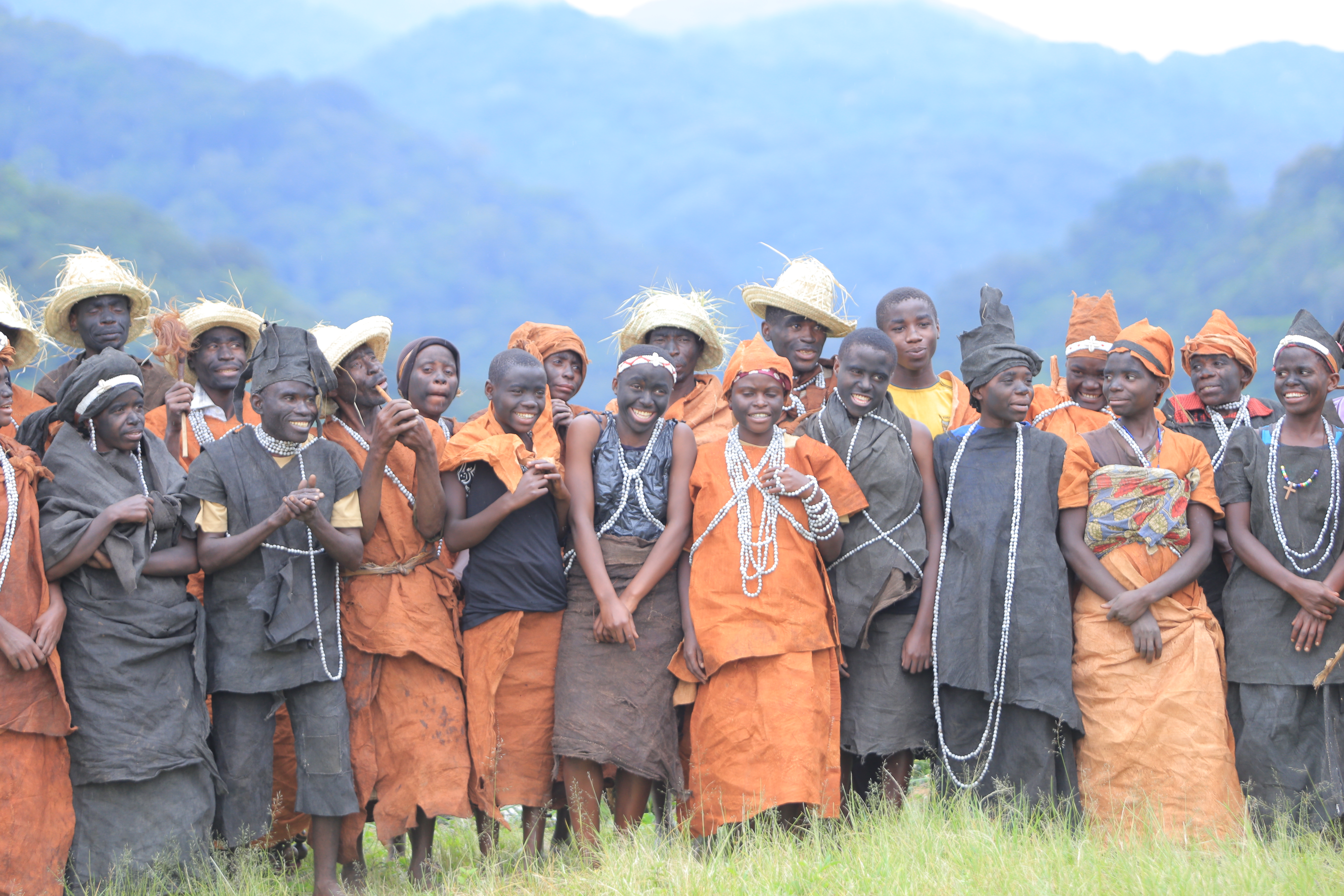
Kakuru says that worst of all is that they no longer have a language as they had to start speaking Rukiga.
“Despite staying here, our life was made to live in the forest but we are either arrested or shot dead if you are found in the forest. Our culture has been washed away since we left the forest which was our home,” he adds.
New heritage centre
Inside the new grass thatched facility are a number of items including herbs, food and other items as were in the forest set up of the Batwa community meant to reminisce the good old days of the Batwa heritage.
“We thought by constructing such a facility, we could help preserve the Batwa culture by giving it a new lease of life. The centre should be able to tell the original story of the Batwa that they enjoyed before being displaced from the forest,” says Christine Katushabe, the Community Sustainable Manager for Change A Life Bwindi, an NGO working to improve the welfare of the Batwa.
She says that tourists can visit the new centre to learn about the Batwa culture but also pay some money that can go towards uplifting the standards for the minority group.
“Batwa language is not anywhere in books and not easy to trace its origin. At the centre, the world will get to know about the Batwa culture as a way of promoting it. The unique story of the Batwa and the beautiful culture can be put out for the entire world to know and appreciate,”Katushabe says.
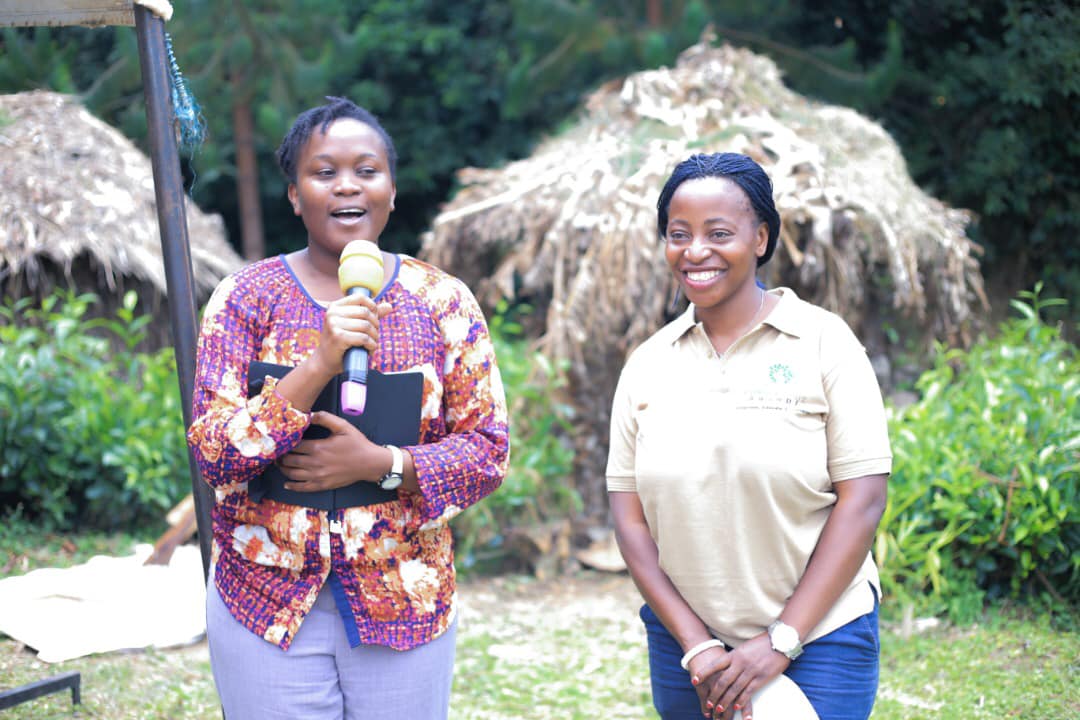
“We can pay school fees for the Batwa children whereas the rest of the money can go the Batwa community. We also want to introduce the Batwa night for tourists to have a feel of the group’s culture as one of the ways to preserve it.”
She says that some of the Batwa can work as guides at the new centre so they can earn money from it other than working on other people’s farms for meager payments.
Challenges
Despite looking good, there are a number of challenges faced by the new Batwa heritage centre that Christine Katushabe says may hinder them from achieving their goal.
“We purchased the land where we constructed the centre for Shs 60 million but we have only been able to pay only a half of it. We are not sure whether the owner ( a Mukiga) will not evict the centre,” she says with teary eyes.
She says that many items they would wish to put in the heritage centre are nowhere to be got apart from Bwindi impenetrable forest but the same is restricted because it is a national park.
“It is our wish that Uganda Wildlife Authority allows that we pick some medicinal and food plants from the forest and plant it here so everyone can be able to look at them but also use,”Katushabe says.
She hopes that at the end of the day, the Batwa heritage will be preserved and given a new lease of life by the new centre.
The post Heritage centre to give a new lease of life to fading Batwa culture appeared first on Nile Post.
0 Response to "Heritage centre to give a new lease of life to fading Batwa culture"
Post a Comment